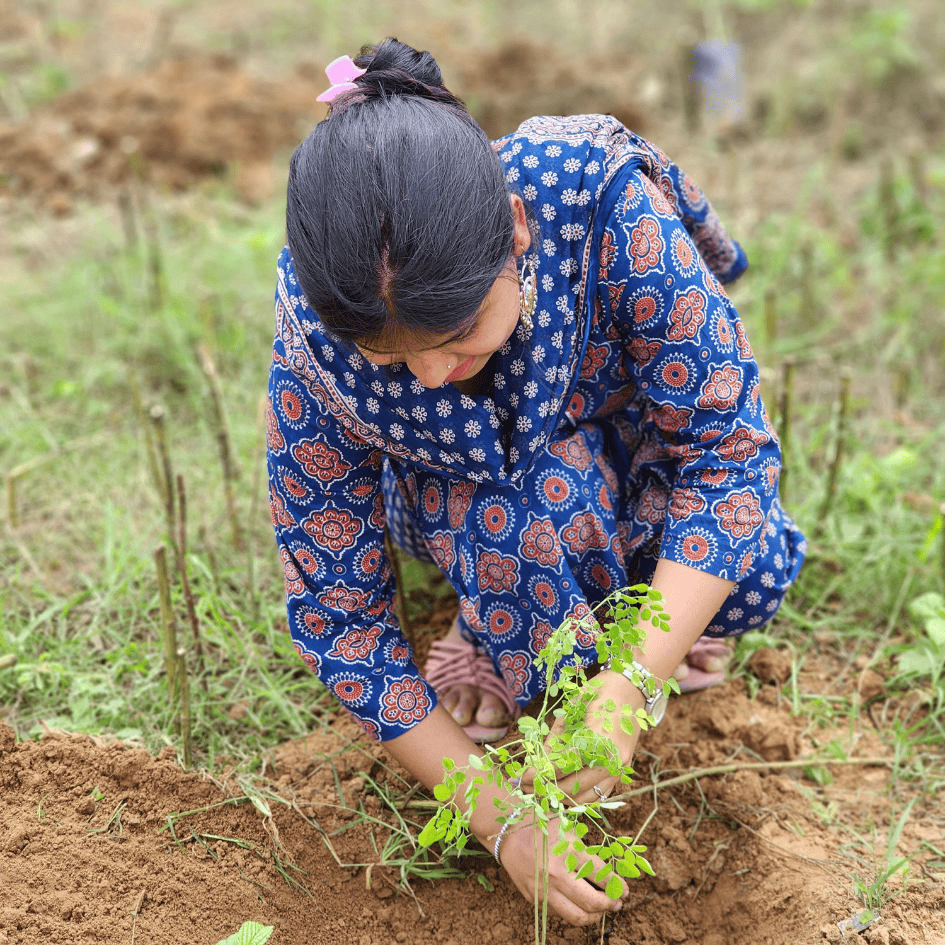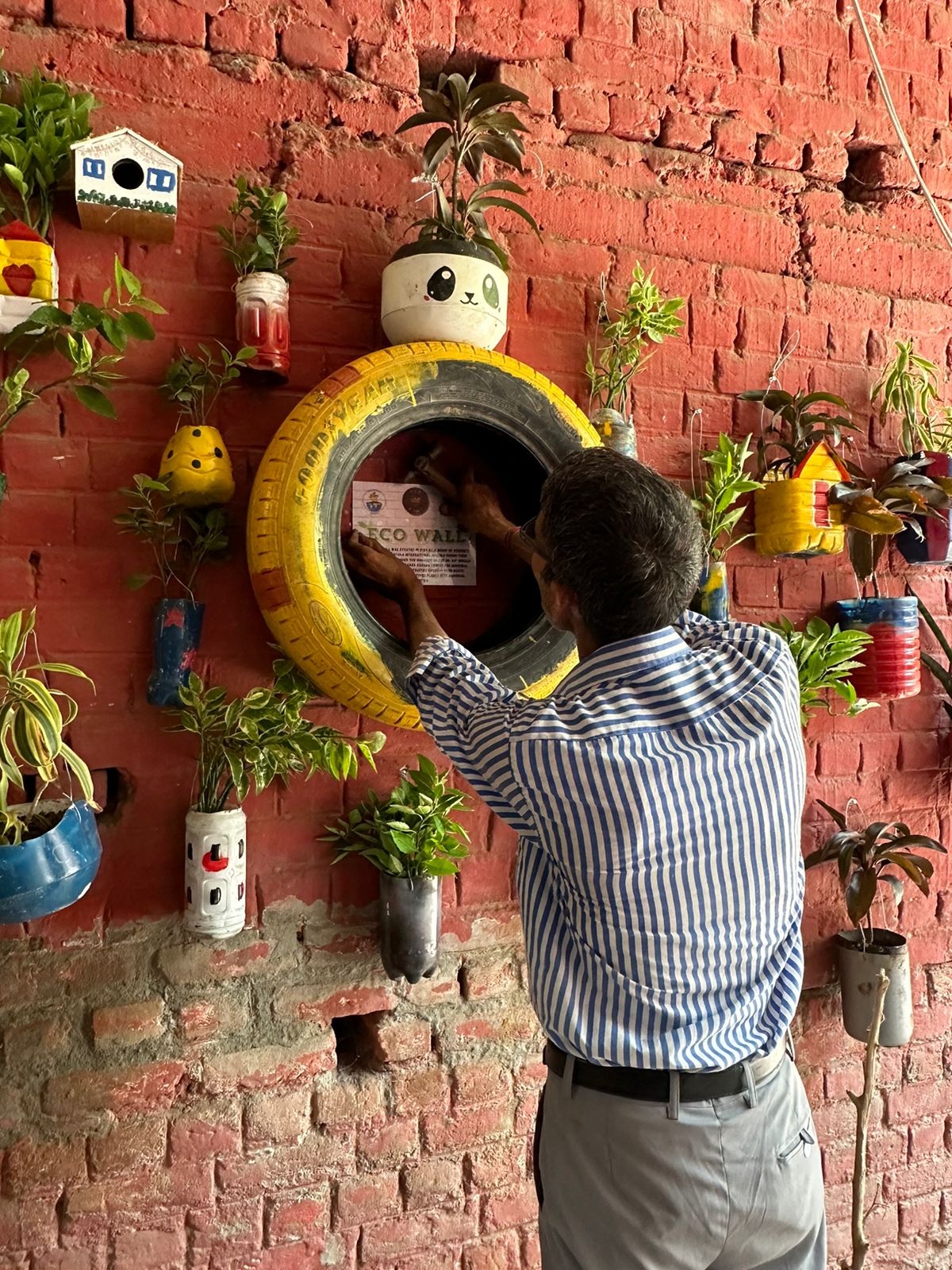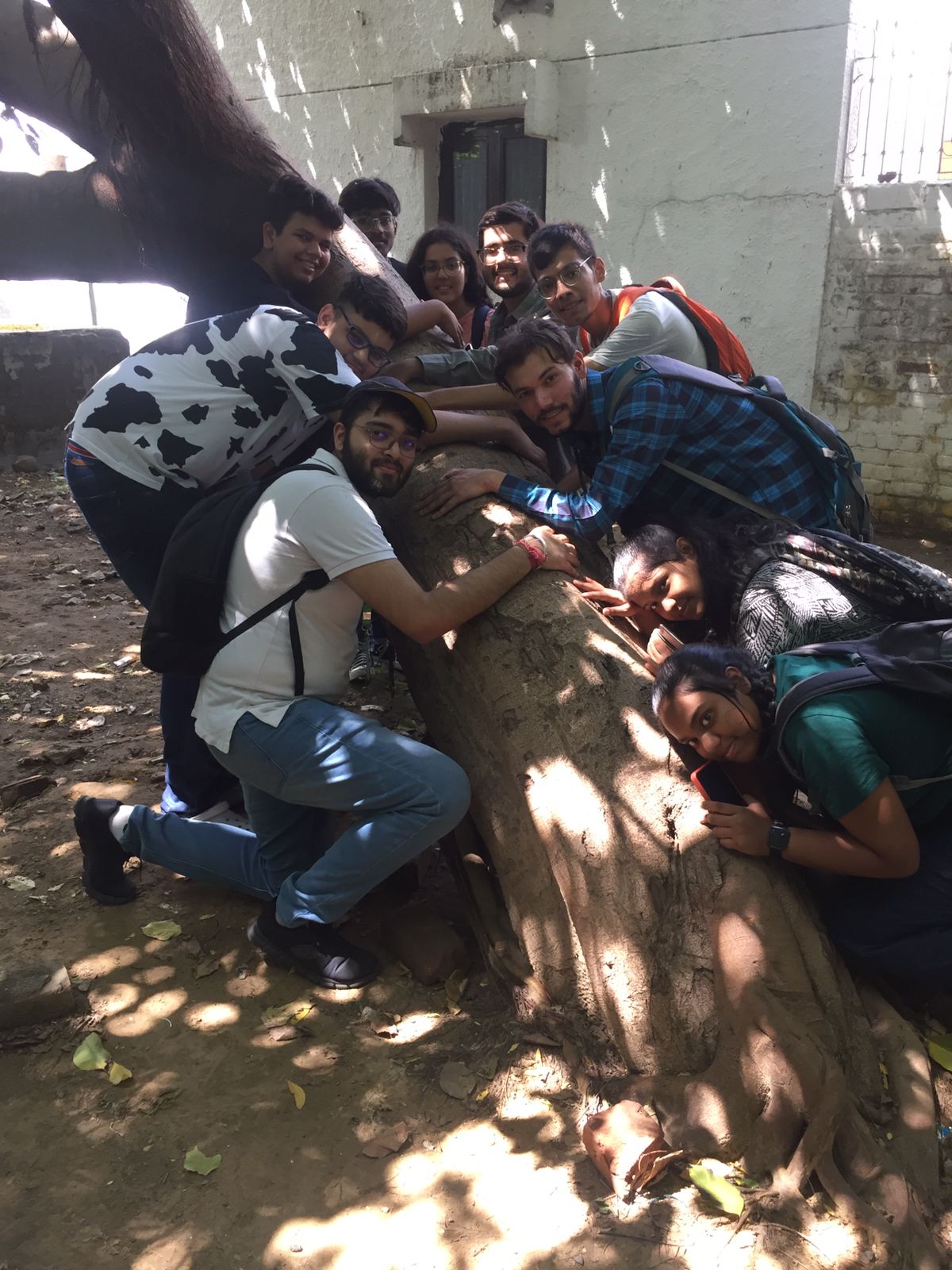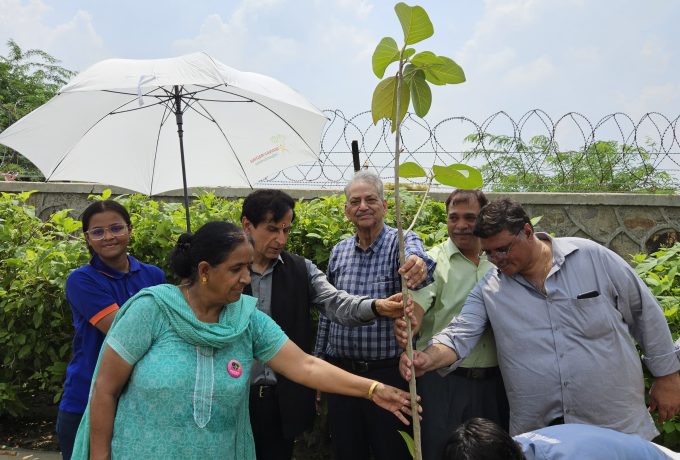Environment and sustainable development
Importance of Environment and sustainable development
Haryana faces pressing environmental challenges, including plastic waste, carbon emissions, and deforestation. The state generates approximately 300 tons of plastic waste daily, much of which ends up in landfills or waterways, impacting ecosystems and health. Carbon emissions are also a growing concern, with Haryana being one of the significant contributors due to its industrial activities and high vehicle density. Additionally, deforestation is evident, with only about 3.6% of the state’s land area covered by forests, far below the national average. Addressing these issues through sustainable practices is crucial to safeguarding Haryana’s environment and promoting long-term ecological health.
Our Initiatives
Environment and Sustainable Development is one of the core objectives of Dr O P Bhalla Foundation. Through our initiatives aligned with SGD-6: Ensure access to clean water and sanitation for all, SDG-13: Take action to combat climate change and its effects and SGD-14: Conserve and use the oceans, seas, and marine resources sustainably, we nurture essential skills and provide facilities to preserve environment in both rural and urban areas in District Faridabad, Haryana
Mega Plantation Drive
An annual plantation initiative to thicken the green belt in urban and rural areas of Faridabad.
Click HereNature walks
Led by environmental experts the sessions include activities like mindful breathing, wildlife observation, and discussions on ecological conservation.
Click HereRaddi Recycling Initiative
Waste paper & cardboard recycling program to print notebooks for Underprivileged Children.
Click HerePNG Crematorium
A vertical garden made of recyclable material to reduce the carbon emission in Faridabad
Click HereEco Wall
A vertical garden made of recyclable material to reduce the carbon emission in Faridabad
Click HereG2: Green Grah
Plastic segregation and recycling program to create new products for community.
Click HereOur Impact
Mega Plantation Drive

Problem
Trees and Plants are source for variety of useful products like paper, fruits, vegetables, medicine, wood, etc. Dependency of plants and trees for our daily livelihood has increase so much that around 15 billion trees are cut annually. The rapid deforestation is leading to global warming, lost of habitat, soil erosion and more such environmental issues.
Our Solution
Mega Plantation Drive is an annual plantation plantation initiative in which variety of plant and trees are distributed and planted in various rural and urban areas all over Faridabad to thicken the green belt of the district and help tackle several environmental problems like climate change, habitat preservation, etc.
Raddi recycling drive

Problem
Over last 40 years, consumption of paper has increased by 400%. Currently, over 200 million trees are cut daily for global paper consumption i.e. over 4 billion trees annually to make notebooks, books, art materials, straws, utensils, currencies and more. Rapid consumption of paper leads to deforestation resulting in environmental issues like climate change, loss of natural habitat and soil erosion.
Our Solution
Raddi Recycling Initiative is a waste paper and cardboard recycling initiative. The waste paper and cardboard collected from Manav Rachna Campus is converted to print notebooks and stationary items that are distributed among the underprivileged children.
Eco-wall

Problem
Carbon emissions are increasing at an alarming rate, significantly contributing to global warming and climate change. In 2021, India emitted over 2.88 billion metric tons of CO₂ making it the third-largest emitter globally. This has a devastating impact on the environment, resulting in rising sea levels, extreme weather events, and loss of biodiversity.
Our Solution
Reducing carbon emissions through sustainable practices is essential to combat climate change. One innovative approach is the use of eco walls—living, green installations that act as natural air filters, absorbing carbon dioxide and releasing oxygen. in turn improving air quality, regulate indoor temperatures, conserve energy, and add aesthetic value to urban spaces.
Nature walks

Problem
Urbanization and a hectic lifestyle have led to a growing disconnect from nature, impacting people’s mental and physical well-being. With limited opportunities to immerse in natural surroundings, many individuals lack access to green spaces that can promote relaxation, reduce stress, and inspire environmental consciousness. This disconnect has not only diminished appreciation for the natural world but has also affected overall health, making it crucial to encourage habits that reconnect people with the environment.
Our Solution
The Nature Walk initiative addresses this gap by organizing guided nature walks in serene and biodiverse settings. These walks offer participants a chance to step away from their daily routines and immerse themselves in the calming embrace of nature. Led by environmental experts and wellness guides, the sessions include activities like mindful breathing, wildlife observation, and discussions on ecological conservation. Nature Walks promote well-being, raise awareness about environmental stewardship, and help individuals form a deeper connection with the natural world, ultimately encouraging sustainable living practices.
PNG crematorium

Problem
Traditional cremation practices in India often rely on large quantities of wood and emit significant amounts of smoke and harmful gases, contributing to deforestation and air pollution. This not only exacerbates environmental concerns but also places a financial burden on families due to the high cost of wood. With increasing urbanization, space and resources for traditional methods are becoming scarce, making it essential to adopt more sustainable and eco-friendly alternatives.
Our Solution
A PNG cremation facility was initiated at the Swarg Ashram, Ajronda Crematorium in September 2018. The PNG (Piped Natural Gas) Crematorium, launched in 2018, offers a cleaner, greener alternative to conventional wood-based cremation. By utilizing PNG, this modern crematorium significantly reduces emissions, conserves natural resources, and ensures a cost-effective solution for families. The crematorium is designed to minimize environmental impact while upholding cultural and religious practices, promoting a sustainable and respectful approach to final rites.
g2: green grah

Problem
Plastic pollution has become a global crisis with severe impacts on the environment and health. In India alone, approximately 3.5 million tons of plastic waste are generated annually, with single-use plastics making up a significant portion. Unfortunately, less than 40% of this plastic is collected and recycled, leading to the accumulation of waste in oceans, landfills, and natural habitats, where it severely harms wildlife and ecosystems.
Our Solution
G2: Green Grah is a plastic waste management initiative to recycle collected plastic waste in benches and other useful products for the community spaces and welfare of the society.
Read More
PNG Crematorium: Honouring Lives, Protecting the Planet.
Honouring Lives, Protecting the Planet: How Dr. OP Bhalla Foundation is Transforming Farewells at the PNG Crematorium Written by Yuvraj Sharma “Saying goodbye to my father wa








